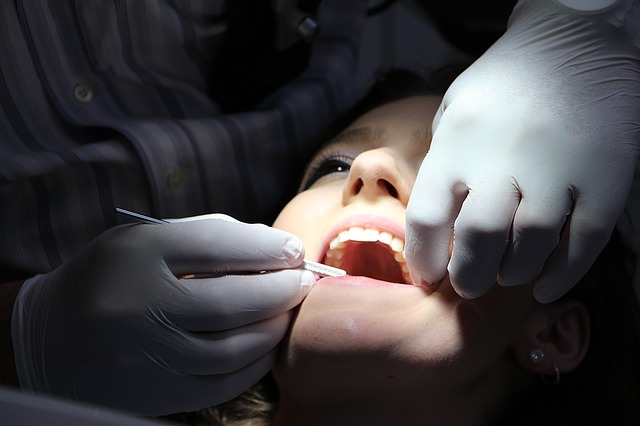Periodontal disease is often silent
Meaning the symptoms may not appear until an advanced stage of the gum disease. Due to this fact, the following self-assessment will help you identify if you are at risk.

How old are you?
Your chances of developing periodontal disease increase considerably as you get older. Studies indicate that older people have the highest rates of periodontal disease and need to do more to maintain good oral health.
Are you female or male?
Studies suggest there are genetic differences between men and women that affect the risk of developing gum disease. While women tend to take better care of their oral health than men do, women’s oral health is not markedly better than men’s. This is because hormonal fluctuations throughout a woman’s life can affect many tissues, including gum tissue.
Do your gums ever bleed?
Bleeding gums can be one of the signs of gum disease. Think of gum tissue as the skin on your hand. If your hands bled every time you washed them, you would know something was wrong. However, if you are a smoker, your gums may not bleed.
Are your teeth loose?
Periodontal disease is a serious inflammatory disease that is caused by a bacterial infection, and leads to the destruction of the attachment fibers and supporting bone that holds your teeth in your mouth. When neglected, teeth can become loose and fall out.
Have your gums receded, or do your teeth look longer?
One of the warning signs of gum disease includes gums that are receding or pulling away from the teeth, causing the teeth to look longer than before.
Do you smoke or use tobacco products?
Studies have shown that tobacco use may be one of the most significant risk factors in the development and progression of periodontal disease. Smokers are much more likely than non-smokers to have calculus form on their teeth, have deeper pockets between the teeth and gums, and lose more of the bone and tissue that support the teeth.
Have you seen a dentist in the last two years?
Daily brushing and flossing will help keep calculus formation to a minimum, but it won’t completely prevent it. A professional dental cleaning at least twice a year is necessary to remove calculus from places your toothbrush and floss may have missed.
How often do you floss?
Studies demonstrate that including flossing as part of your oral care routine can actually help reduce the amount of gum disease-causing bacteria found in the mouth, therefore contributing to healthy teeth and gums.
Do you currently have any of the following health conditions?
Heart disease, osteoporosis, osteopenia, high stress, or diabetes
Ongoing research suggests that periodontal disease may be linked to these conditions. The bacteria associated with periodontal disease can travel into the bloodstream and pose a threat to other parts of the body. Healthy gums may lead to a healthier body.
Have you ever been told that you have gum problems, gum infection, or gum inflammation?
Over the past decade, research has focused on the role chronic inflammation may play in various diseases, including periodontal, or gum, disease. Data suggests having a history of periodontal disease makes you six times more likely to have future periodontal problems. Periodontal disease is often silent, meaning symptoms may not appear until an advanced stage of the disease.
Have you had any adult teeth extracted due to gum disease?
The more recent your loss of a tooth due to gum disease, the greater the risk of losing more teeth from the disease. Wisdom teeth, teeth pulled for orthodontic therapy, or teeth pulled because of fracture or trauma may not contribute to increased risk for periodontal disease.
Have any of your family members had gum disease?
Research suggests that the bacteria that cause periodontal disease can pass through saliva. This means the common contact of saliva in families puts children and couples at risk for contracting the periodontal disease of another family member. Also, research proves that up to 30% of the population may be genetically susceptible to gum disease. Despite aggressive oral care habits, these people may be six times more likely to develop periodontal disease.



